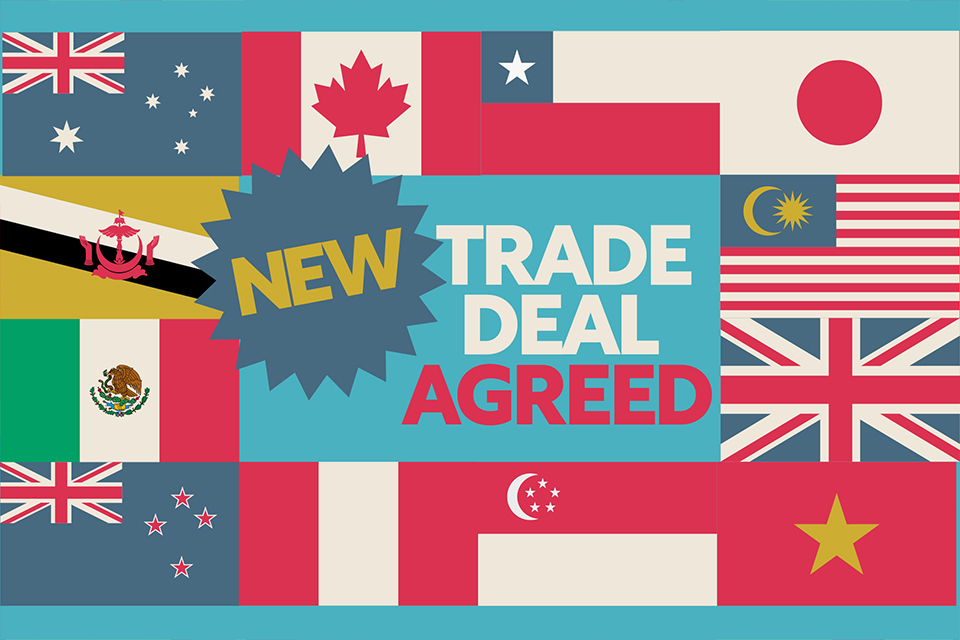New trade deal poor for workers!

CPTPP trade deal will allow corporations to sue governments over policies affecting profits, unions and campaigners warn.
Multinational corporations will be able to sue any British givernmnet which introduces policies deemed detrimental to their profits. The new trade deal signed today by the Tories, warned by the unions. The Comprehensive and Progressive Agreement for Trans-Pacific Partnership (CPTPP) could jeopardise decisions such as increases to the national minimum wage.
The agreement was signed by Tory business secretary Kemi Badenoch during a visit to New Zealand where she announced that it would “deliver billions of pounds in additional trade”. The government’s own estimates showing that it will add only 0.08 per cent to the size of the economy over 10 years.
 Pros and Cons of Trade
Pros and Cons of Trade What is government aiming for?
The government has been desperately scrabbling for trade deals following Britain’s breach with the European Union and exit from the single market. It has thus far failed to secure a much-vaunted free trade deal with the United States. Britain is the first to sign the CPTPP in 2018. The treaty also involves Australia, Brunei, Canada, Chile, Japan, Malaysia, Mexico, New Zealand, Peru, Singapore and Vietnam.
Why is it Poor for Workers?
The agreement proves to bad for the workers at home and abroad. Once again, Conservative ministers have turned a blind eye to egregious human and workers’ rights abuses in their pursuit of trade deal. Workplace exploitation is widespread in the countries involved in this agreement. The multinational corporations have the right to sue the UK government in secret. This is for introducing policies which threaten their profits-this could include an increase in the minimum wage or bringing energy companies back into public onwership.
 Uk trade strike Poor for workers
Uk trade strike Poor for workersWhat should government do?
The government should be using its international influence to promote decent work, deliver green jobs and protect our public services. Also not treat treade deals as publicity tools. It’s time to meaningfully consult with unions and listen to our concerns. The deal still has to be scrutinised by Parliament and will be subject to legislation.
Trade policy critiqued by Environmentalist
The agreement was also criticised by environmentalists. World Wildlife Fund-UK director Angela Francis said the government was “knowingly enabling trade in products that are wreaking havoc on our natural world.” Other critics stated that the agreement wil be limited, with official estimates of just £1.8 billion a year to the economy after 10 years.

- Art
- Causes
- Best Offers
- Crafts
- Dance
- Drinks
- Film
- Fitness
- Food
- Games
- Festival
- Gardening
- Health
- Home
- Literature
- Music
- Networking
- Other
- Party
- Religion
- Shopping
- Sports
- Theater
- Wellness



